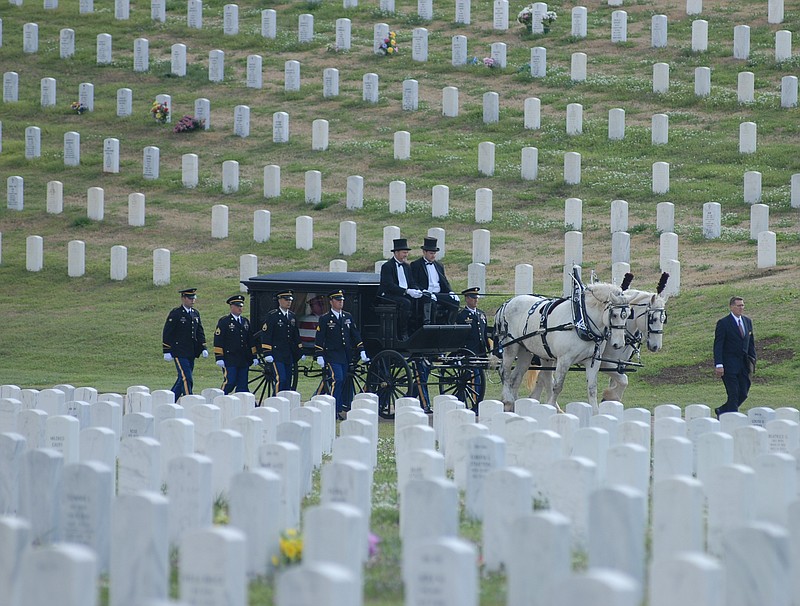For those who say it's "just another day" or that they "feel very conflicted" or that "there's not a lot to be proud of when celebrating the Fourth of July," as people maintained in a front-page Associated Press article in Tuesday's Times Free Press, we beg to differ.
Although the report primarily concerned minorities, many Americans of all stripes - black, white Hispanic, Republican, Democrat, straight, gay, male, female - have felt conflicted about their country throughout the course of its history but especially over the past 25 years and through this and the previous three presidencies.
And, depending on what they expected of the country, they could justify their feelings. The federal government wasn't doing enough. The federal government was doing too much. Illegal immigration has become a huge problem. Illegal immigration is no problem. We need to stop radical terrorism abroad before it grabs a foothold in our country. We need to let people abroad handle their own problems.
You get the idea.
We would argue, though, that with all of our partisan differences, we still are the strongest, freest, most generous country in the world. So, for those who feel "conflicted" today, we offer a few ideas on how to get a new perspective on your home, ideas you probably have not considered before, ideas that explain why people by the millions still want to come here, why the country is still looked upon first to settle international disputes and why living "poor" in the United States is akin to living like kings and queens in many other countries.
* Spend time at the Chattanooga National Cemetery. It's full of average, ordinary Chattanoogans who served their country in conflicts since the Civil War. But it also contains the graves of seven Medal of Honor recipients, including Desmond Doss, whose World War II service as a conscientious objector was made into the recent Academy Award-nominated film "Hacksaw Ridge."
* Study the lives of Supreme Court Justice Clarence Thomas and Secretary of Housing and Urban Development Dr. Ben Carson. Born into poverty-ridden families with little prospects, they did not let their circumstances stop them; instead, they worked hard to overcome difficulties and become prominent in their fields. If we believe we can't improve our lots, we probably won't. But American history is full of people who did not let their poor starts keep them from achieving greatness.
* Visit Colonial Williamsburg. The living history town lost $54 million in 2016 and recently laid off 71 people and made other financial decisions in an effort to become solvent. But there in the town that was the capital of Virginia from 1699 to 1780, many of the Founding Fathers forged their dreams of independence. And, at the same time, slaves dreamed of independence of their own. Often it helps to understand where we've been in order to forge the way ahead.
* Read "D-Day" by Stephen E. Ambrose or "Flags of Our Fathers" by James Bradley and Ron Powers. Unless we understand the courage some men who are still living had in the face of seemingly insurmountable obstacles in the defense of their country - in World War II Europe and the Pacific, respectively - we may not know why true freedom has such a high cost and why it must be protected.
* Watch movies that depict fortitude in the face of struggles, some of them fictional but many of which actually occurred. To name just a few, screen "Schindler's List," "12 Years a Slave," "12 Angry Men," "Mr. Smith Goes to Washington," "The Pursuit of Happyness," "127 Hours," "Gandhi," "Inherit the Wind," "Les Misérables," "The Color Purple," "The Grapes of Wrath," "The Help" and "To Kill a Mockingbird." We often don't know what we're made of until we face significant obstacles.
* Attend court proceedings. If you believe the judicial "system" is against certain groups of people, you might be surprised how often people get second chances, get off with a proverbial "slap on the wrist," have their charges reduced or receive a lighter sentence than their charges might indicate. Judges and prosecutors are not unlike the rest of us, who want to believe the best about people and can often cut them a break.
* Run for office. The qualifications are minimal, and the number of signatures needed is few. You may not win, but you will have a multitude of opportunities to get your point across. Protesting and tilting at windmills can only go so far and often wins you more enemies than friends. Changing the system, the rule, the law, the way of thinking is not likely to happen with a sign in the street, but an elected office offers a voice and a vote toward the end you seek.
The United States, like all countries, is not perfect. But with all its flaws, it is a land where people dream big dreams, sacrifice to get ahead, receive multiple opportunities, lay down their lives, give people second chances and overcome withering barriers. For those who still believe in those things, July Fourth will never be just another day.
